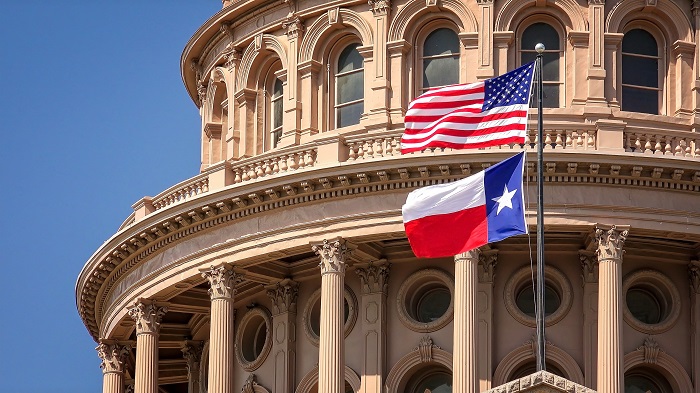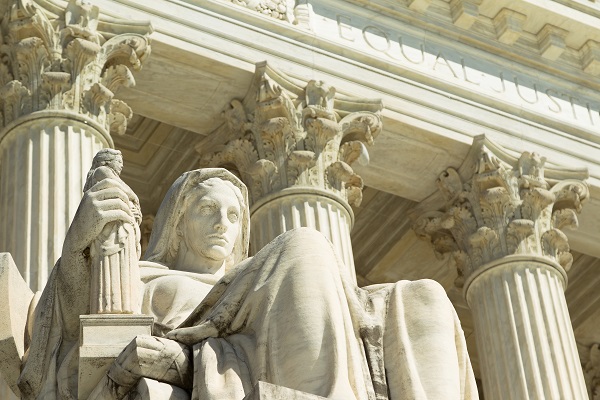The European Union’s General Data Protection Regulation (GDPR) went into effect on May 25, 2018, and introduced privacy concepts that were new to some U.S. businesses. Fortunately, the GDPR was developed over a period of time that allowed for thoughtful deliberation and careful drafting. The California Consumer Privacy Act (CCPA), on the other hand, was speedily enacted under the threat of a ballot initiative.
Posts published by “Eric Rosenkoetter”
Eric Rosenkoetter is a principal at Maurice Wutscher LLP, where he provides counsel to businesses and consumer financial services firms nationwide. For many years, he has focused his practice on various aspects of financial services law. As a litigation attorney, he has conducted every aspect of the litigation process, including countless depositions, motion proceedings, bench and jury trials, and appeals in various courts. In addition, he has significant experience as a compliance and transactional attorney, providing strategic, business growth, legislative, compliance and regulatory advice to national corporations and trade associations. For example, he has drafted consumer contracts and disclosures designed to state-specific statutory requirements, and developed “Best Practices” guides and state-by-state compliance grids, for national financial services companies. He also conducted research and crafted a metrics report for a national trade association with analysis designed to counter the claims of advocacy groups. Eric’s experience also includes working for a national corporation as Executive Counsel, Chief Compliance and Ethics Officer, and Director of Legislative Affairs, and as a federal lobbyist and Director of Government and Public Affairs for a national financial services trade association. In the government sector, Eric presided over approximately 6,000 state administrative hearings, served as a staff attorney for the Missouri Senate, and handled litigation in 33 counties as a regional managing attorney. Eric frequently speaks to audiences on topics relevant to the financial services industry including regulatory compliance, data privacy law and related advocacy initiatives. For more information, see https://mauricewutscher.com/attorneys/eric-rosenkoetter/
Nevada has enacted a new law entitled the “Consumer Protection from the Accrual of Predatory Interest After Default Act,” which relates to consumer form contracts used in connection with retail installment transactions and the prejudgment and postjudgment interest and attorney fees that may be awarded by a court. Signed into law on June 3 and applicable only to contracts entered into on or after Oct. 1, the Act adds a new chapter to Title 8 of the Nevada Revised Statutes, “Commercial Instruments and Transactions.” The Act does not apply to a number of entities, including (but not limited to): banks;…
On June 25, the Illinois Legislature sent Senate Bill 1624 to Gov. J. B. Pritzker. The legislation adds a requirement to Illinois’ data breach notification law to notify the attorney general in the event of certain data breaches. The bill will become law if not returned by the governor by Aug. 24, 2019. The legislation would amend the Personal Information Protection Act, 815 ILCS 530/10, by requiring that any data collector who must inform more than 500 Illinois residents of a data breach also provide notice to the attorney general describing: the nature of the breach; the number of affected residents;…
Texas Enacts Amendments to Data Breach Notification Law; Creates Privacy Protection Advisory Council

On June 14, Texas Gov. Greg Abbott signed into law House Bill 4390 which amends the notification requirements of Texas’ data breach law and creates an advisory council to study data privacy laws generally. The provisions become effective Jan. 1, 2020. Currently, a person conducting business in Texas who “owns or licenses computerized data that includes sensitive data” must disclose the breach to any affected individual “as quickly as possible.” Tex. Bus. & Com. Code § 521.053(b). The amendments will require the disclosure “be made without unreasonable delay and in each case not later than the 60th day after the…
On April 30, Washington Gov. Jay Inslee signed into law Substitute House Bill 1531 which places new requirements on medical debt collectors. The new provisions go into effect July 28, 2019. The new law requires medical debt collectors to inform consumers in the initial written communication of the right to request the original account number, date of last payment and an itemized statement regarding the debt. For hospital debt, the communication must also notify consumers they “may be eligible for charity care from the hospital, together with the contact information for the hospital.” Upon an oral or written request for…
The Texas Legislature has passed House Bill 996 which limits when a debt buyer can initiate legal action or arbitration to collect consumer debt and requires specific notices with respect to out-of-statute debt. Upon approval by Texas Gov. Greg Abbott, the new provisions will become effective Sept. 1, 2019. Definition of a Debt Buyer “Debt buyer” is defined as “a person who purchases or otherwise acquires a consumer debt from a creditor or other subsequent owner of the consumer debt, regardless of whether the person collects the consumer debt, hires a third party to collect the consumer debt, or hires…
On March 26, West Virginia Gov. Jim Justice approved House Bill 3143 which amends the state’s Consumer Credit and Protection Act. First, current law provides that a Regulated Consumer Lender License is required for: Making regulated consumer loans; or Taking assignments of or undertaking direct collection of payments from or enforcement of rights against consumers arising from regulated consumer loans (W. Va. Code § 46A-4-101). The amendment excludes from licensing under this section collection agencies that are licensed pursuant to the West Virginia Collection Agency Act. Second, the bill increases the dollar thresholds for certain loans to which maximum finance…
The U.S. Court of Appeals for the Eleventh Circuit recently ruled that an offer to “resolve” a debt without disclosing its time-barred status may be deceptive or misleading under the federal Fair Debt Collection Practices Act (FDCPA) even in the absence of an express threat of litigation. A copy of the opinion in Holzman v. Malcolm S. Gerald & Assocs., Inc. is available at: Link to Opinion. The letter at issue stated the debt collector wanted to “resolve” the consumer’s account by accepting a reduced amount by a specific date. The consumer filed a lawsuit alleging the letter was false and misleading in…
The U.S. Supreme Court handed down its much-anticipated opinion in Obduskey v. McCarthy & Holthus LLP on March 20, ruling the federal Fair Debt Collection Practices Act does not cover persons engaged in “non-judicial foreclosures” except with respect to a single provision contained in the FDCPA. Colorado, like many western states, has a procedure that allows a lender to foreclose property without the need to file a lawsuit. Here, as you may recall, a Colorado borrower defaulted on his home loan and the mortgage servicer hired a law firm to pursue a non-judicial foreclosure. The borrower informed the law firm he was disputing…
A trio of bills currently pending in the New York State Senate would extinguish debt, require licensing and impose additional requirements in collection litigation. New York Senate Bill 691 and Senate Bill 2239 would completely extinguish the right to collect debt arising from a consumer credit transaction upon expiration of the statute of limitations. Senate Bill 691 goes a bit further by proposing to reduce the statute of limitations in “consumer credit transactions” to three years although it does provide certain exceptions. In addition, Senate Bill 691 would require certain disclosures to be provided to defendants in lawsuits brought on…
Newly introduced legislation in Texas, House Bill 996, addresses when a debt buyer can initiate legal action or arbitration to collect a consumer debt and requires specific notices with respect to out-of-statute debt. “Debt buyer” is defined as “a person who purchases or otherwise acquires a consumer debt from a creditor or other subsequent owner of the consumer debt, regardless of whether the person collects the consumer debt, hires a third party to collect the consumer debt, or hires an attorney to pursue collection litigation in connection with the consumer debt. The term does not include: a person who acquires a charged-off…
The Rhode Island Department of Business Regulation has adopted a record retention rule for debt collectors requiring that virtually all records be retained for a minimum of five years “following the transaction.” Records that must be retained include the following: all audio recordings of contact with customers; records of all customers contacted; all written correspondence (including that sent electronically) between the licensee and the consumer; complete files and documentation of every debt the licensee has attempted to collect including any and all documents relating to that debt; all communications received from customers including copies of all documents received in hard…











